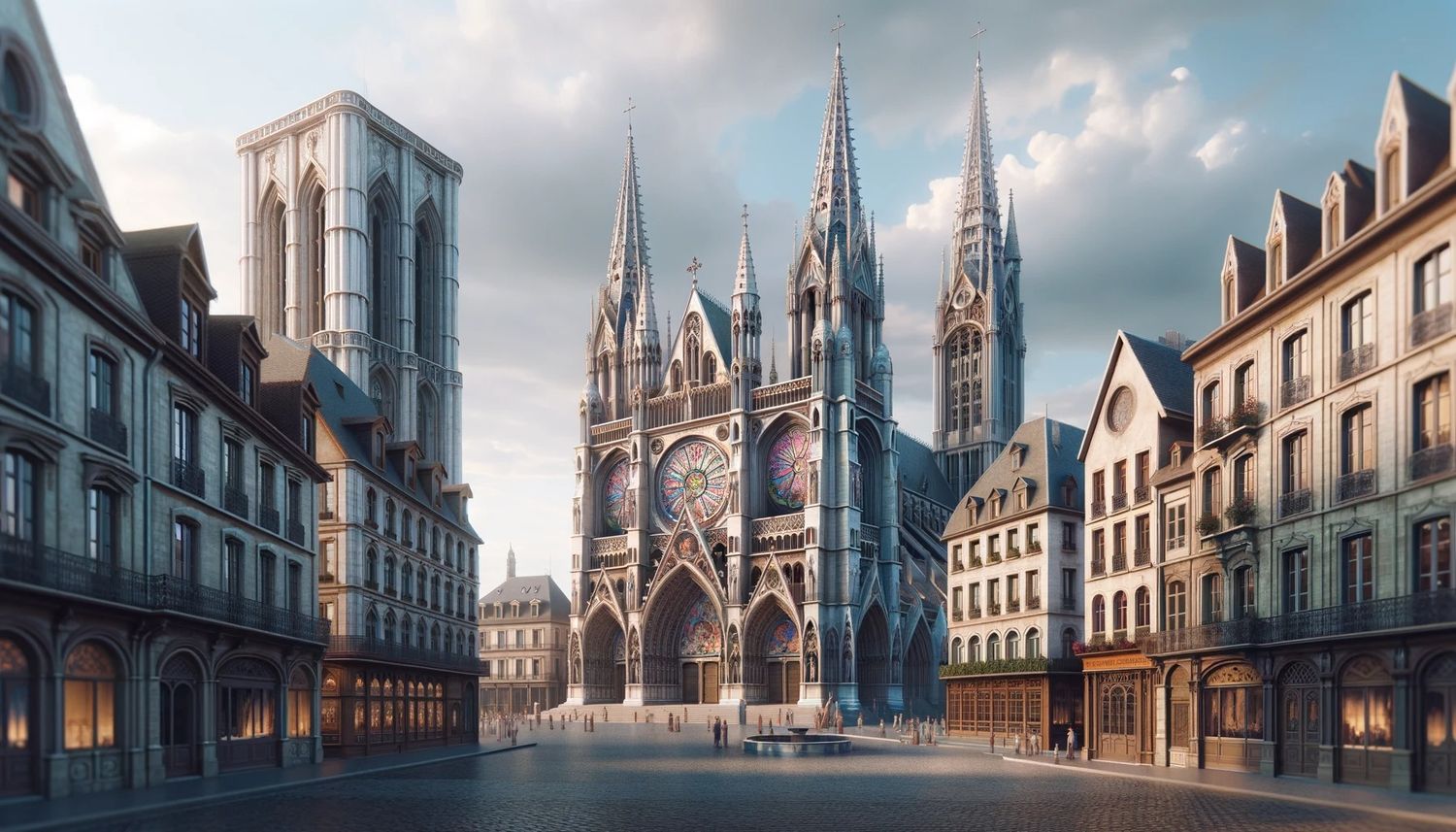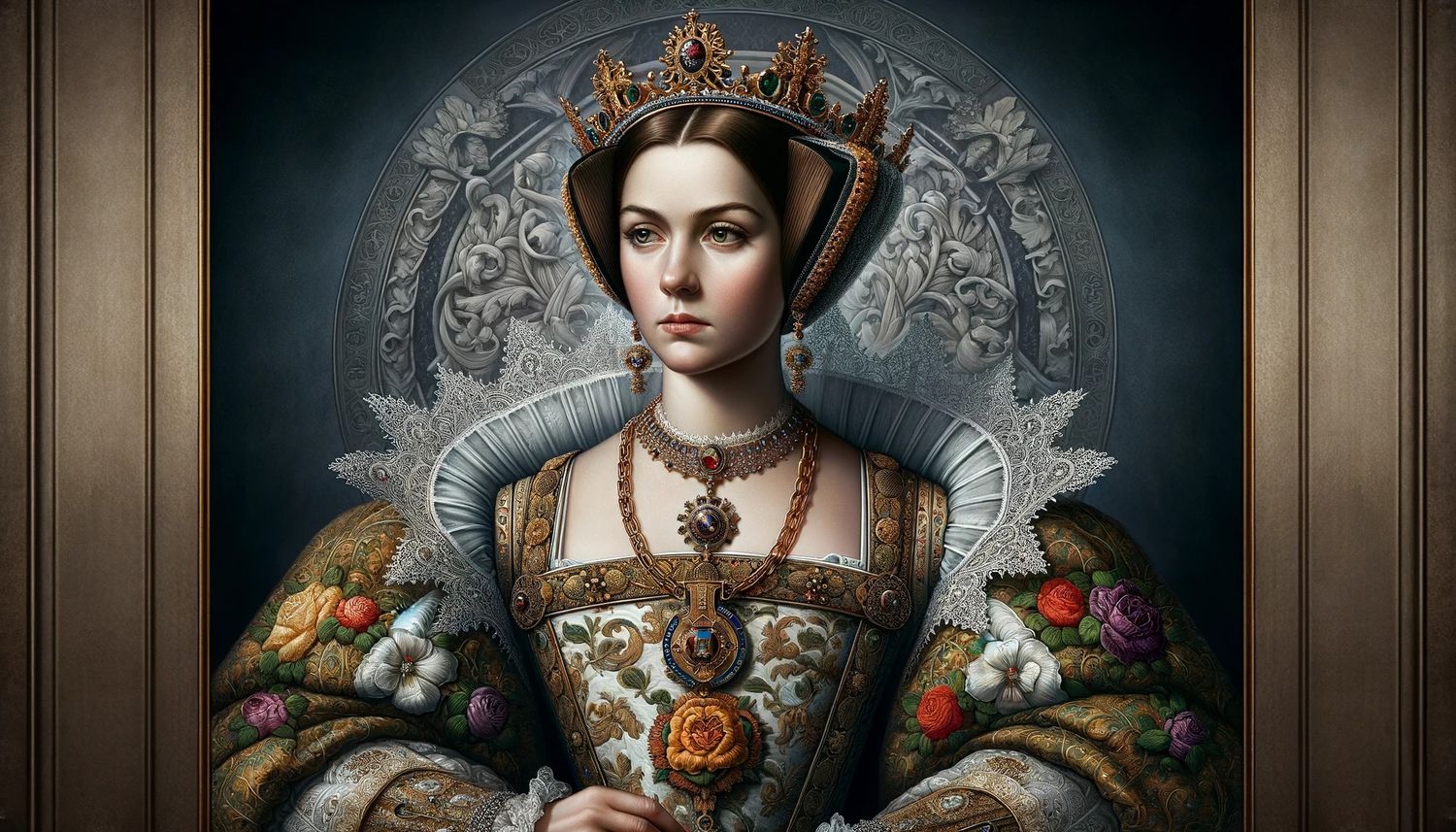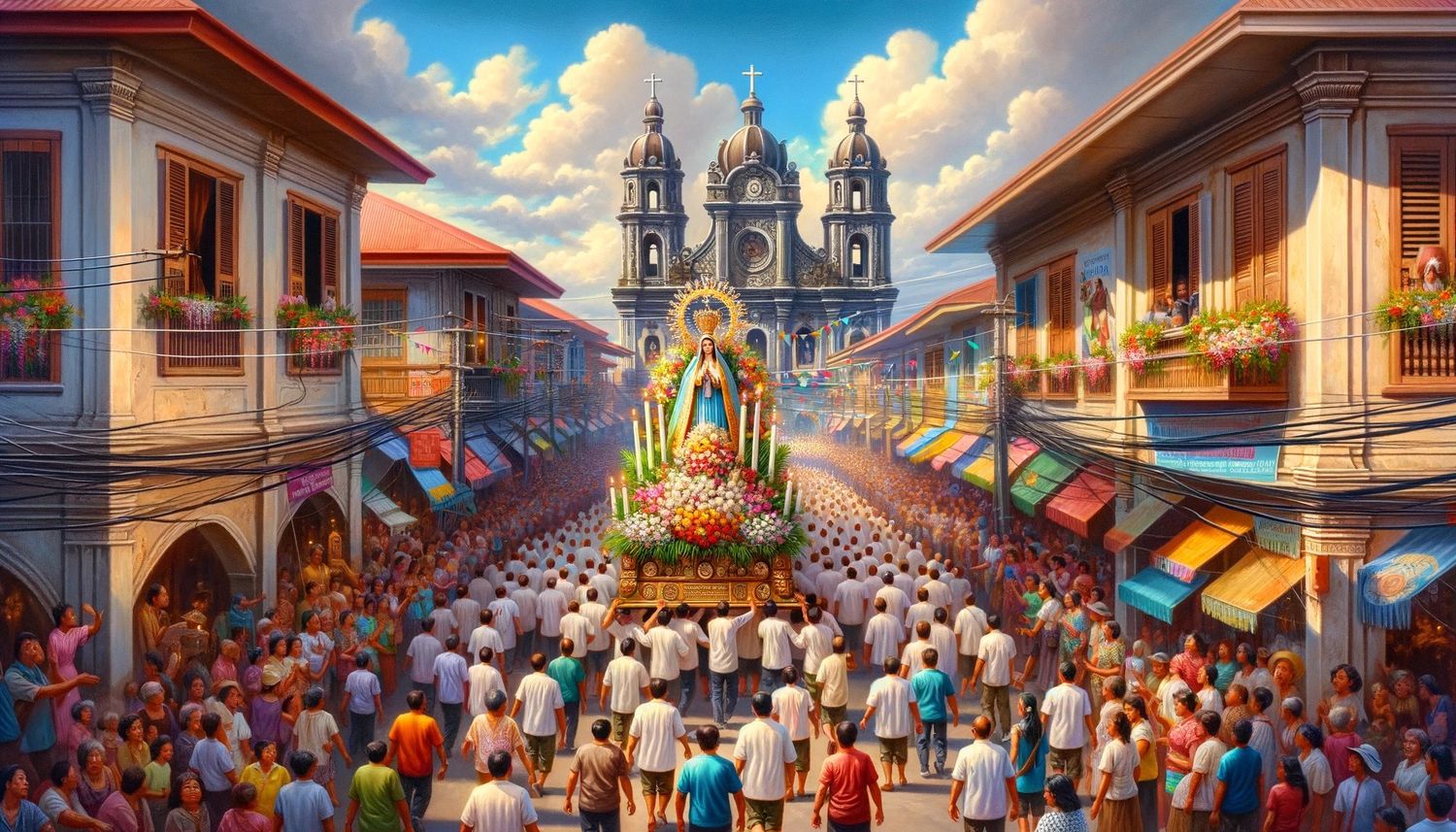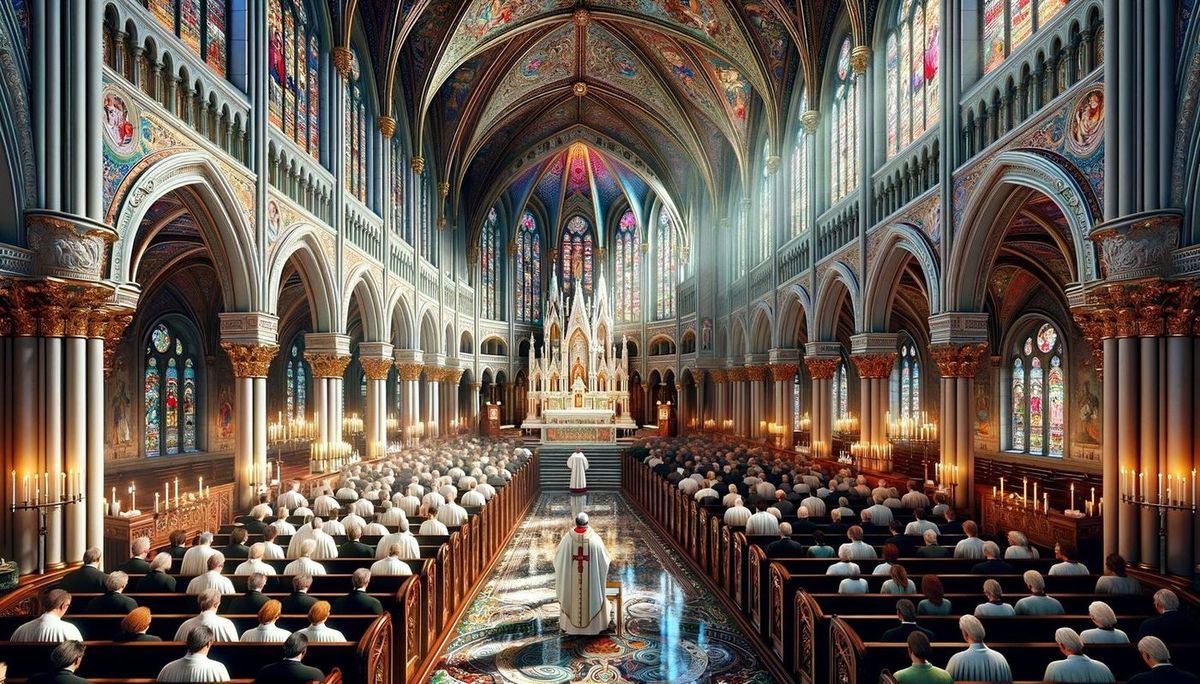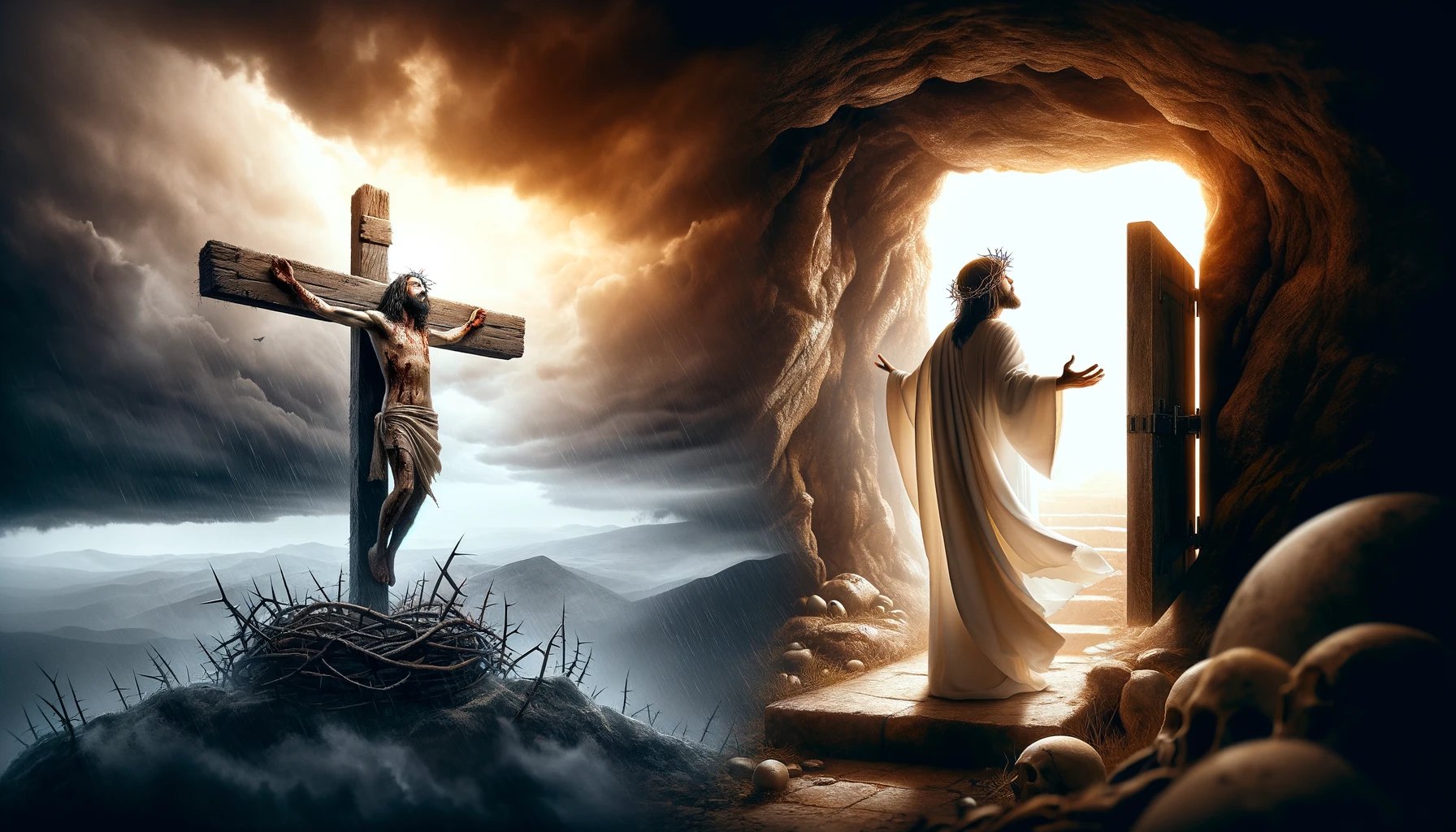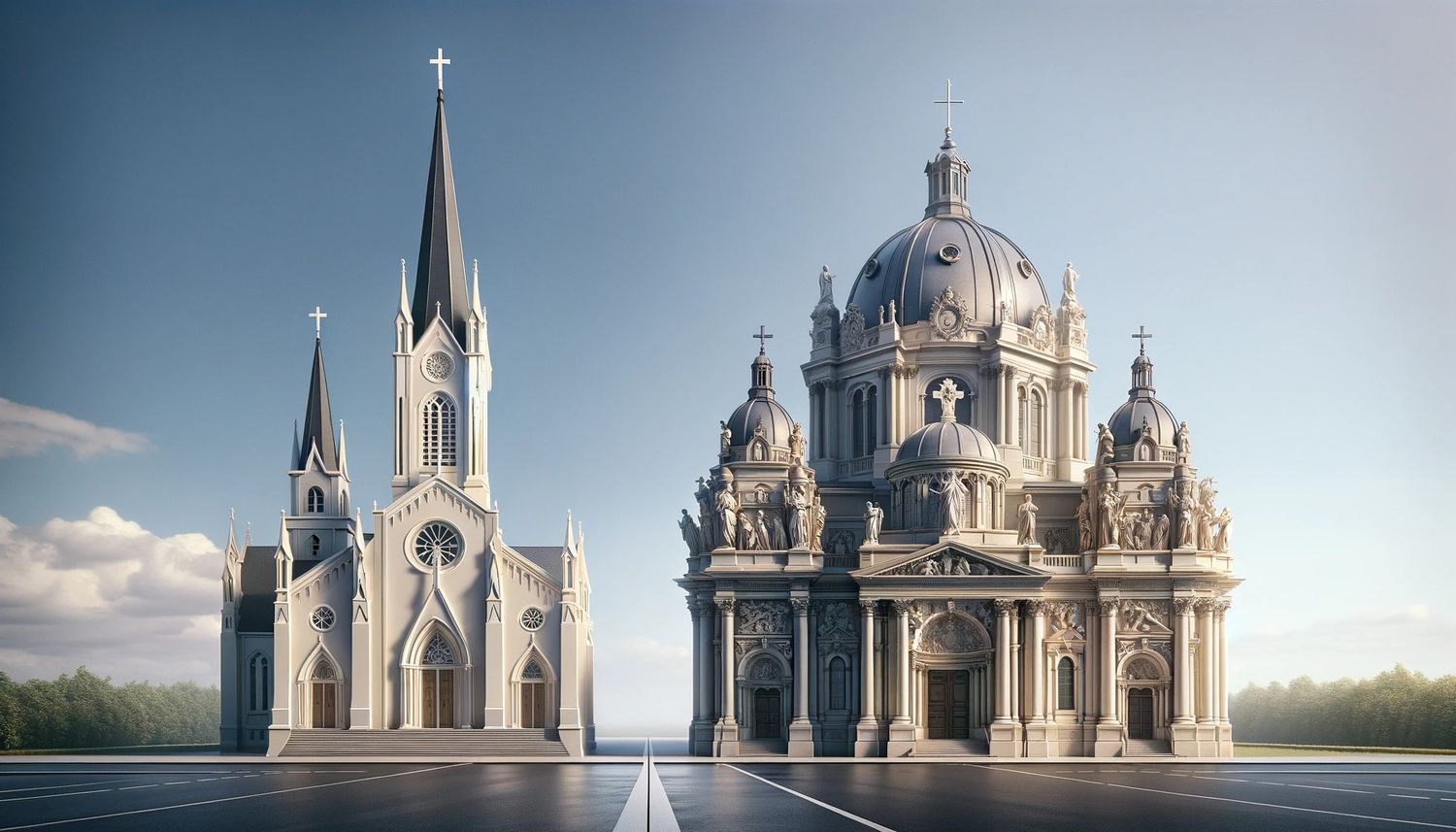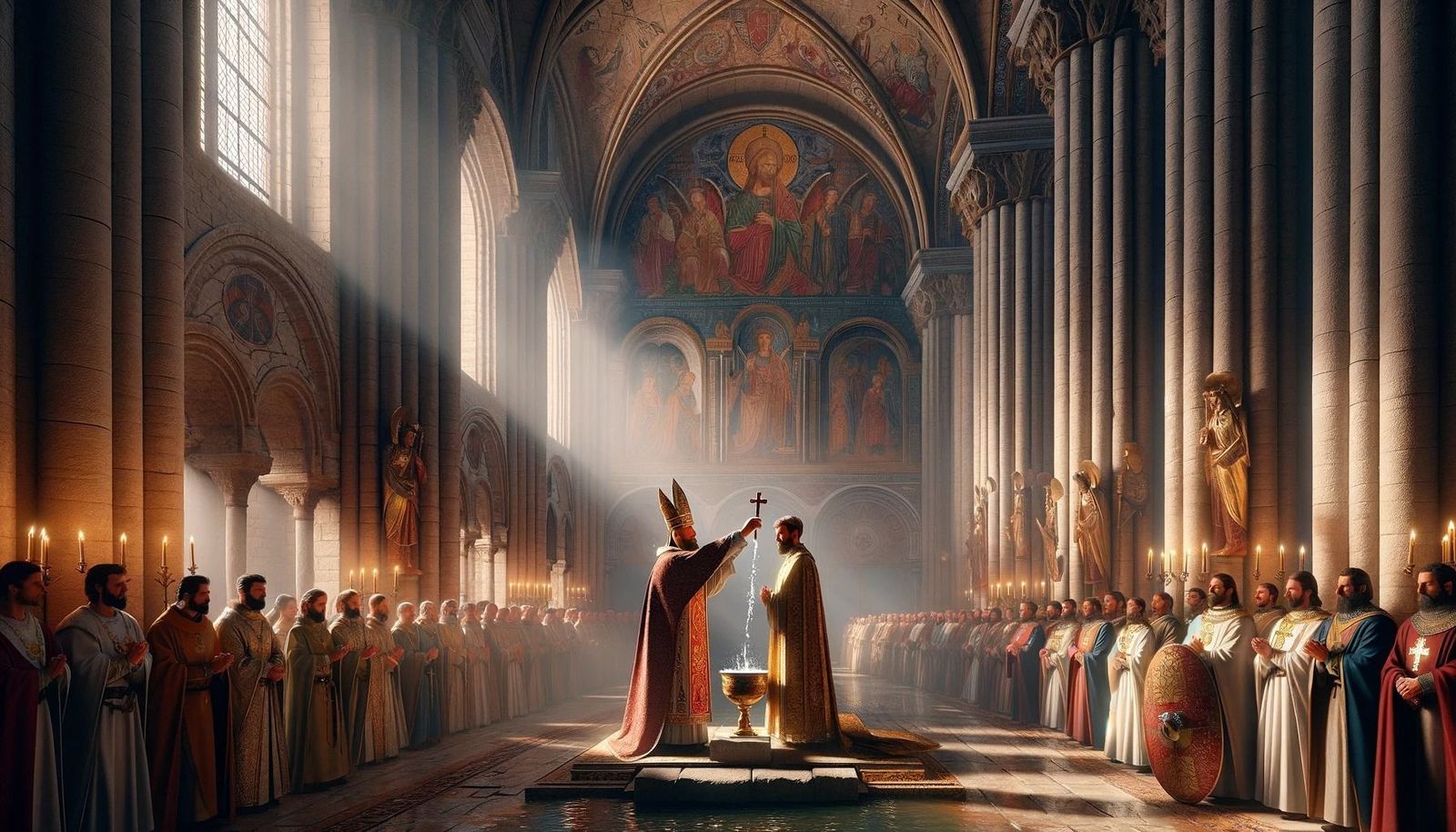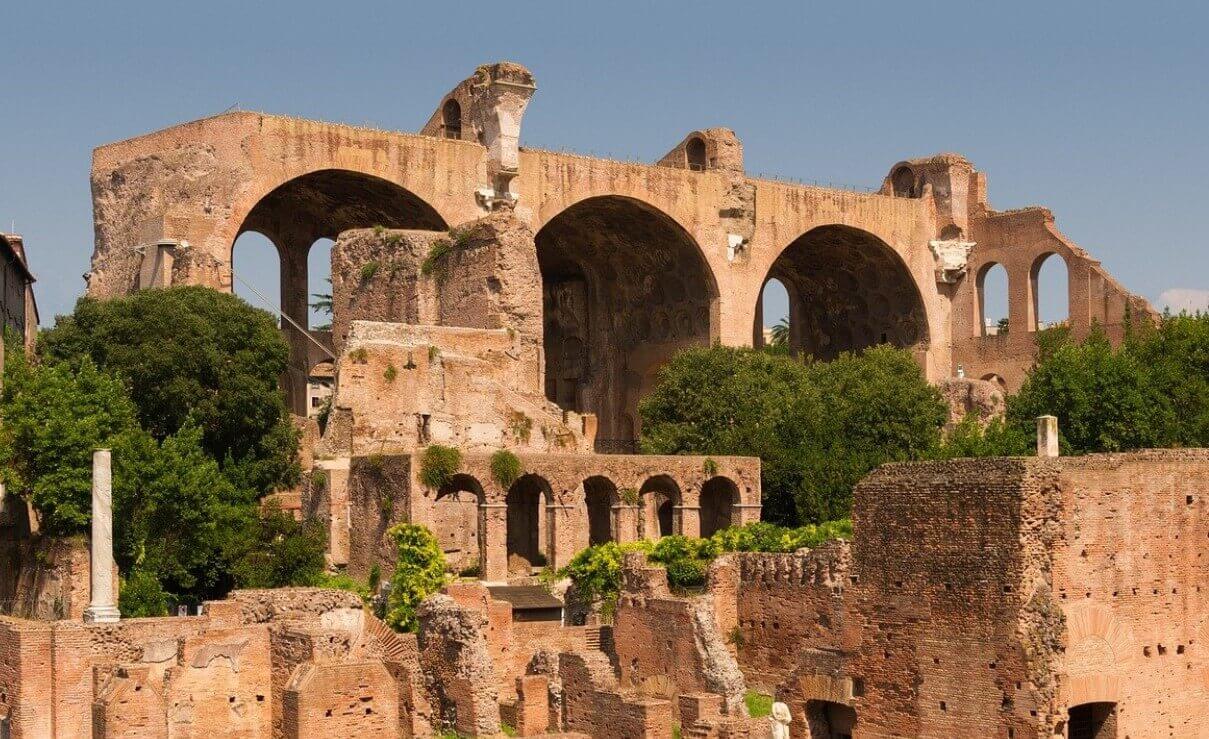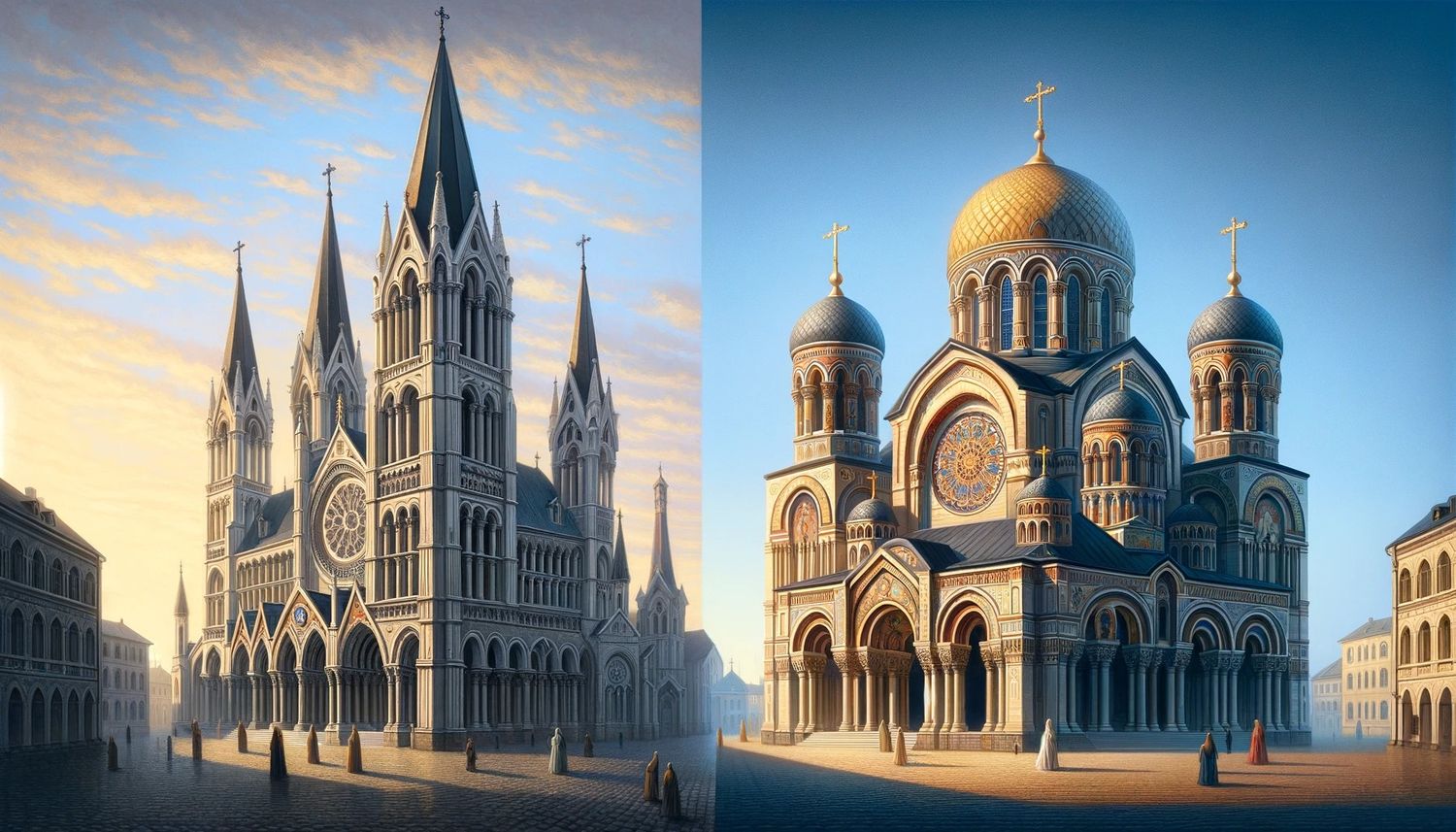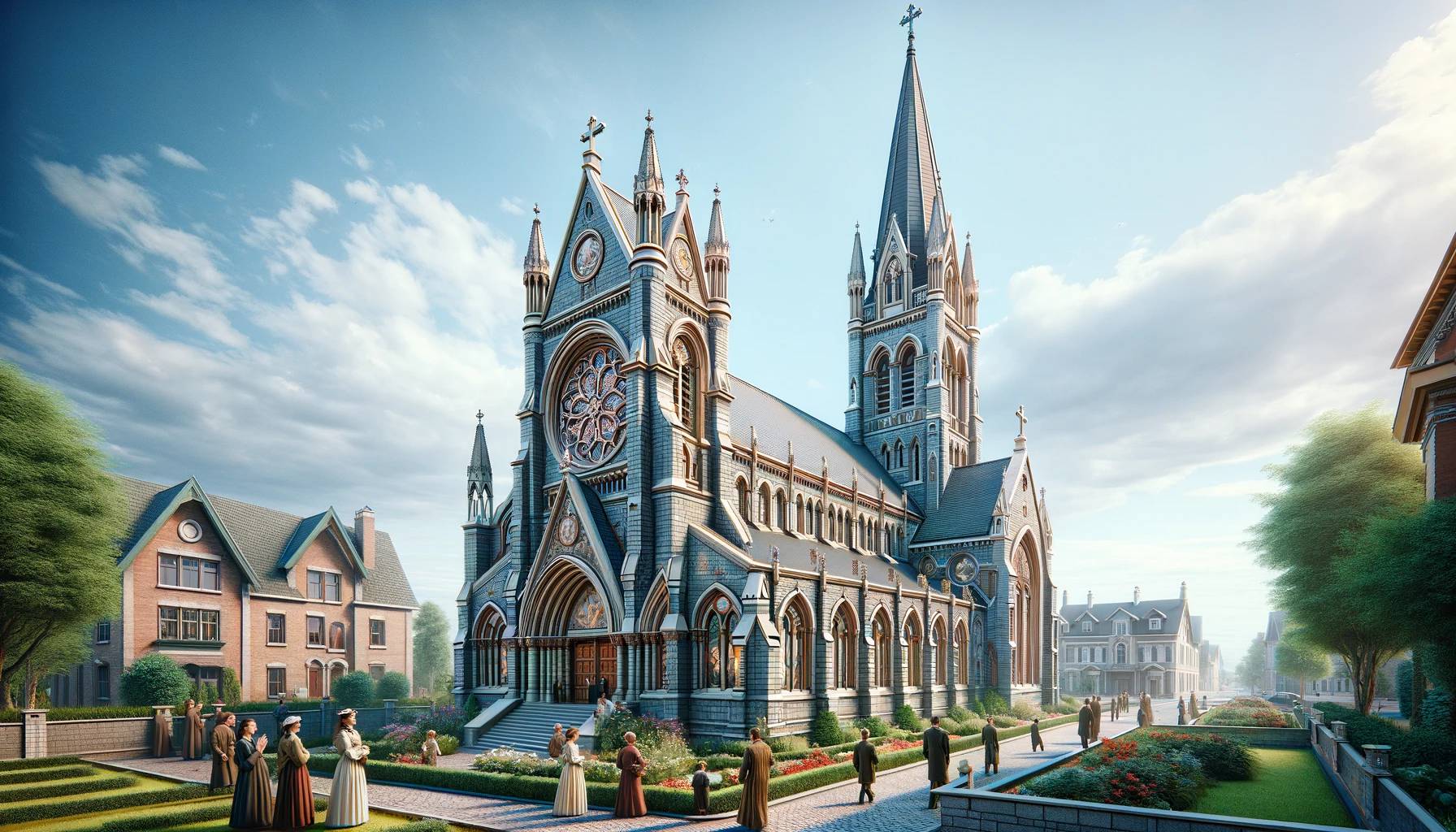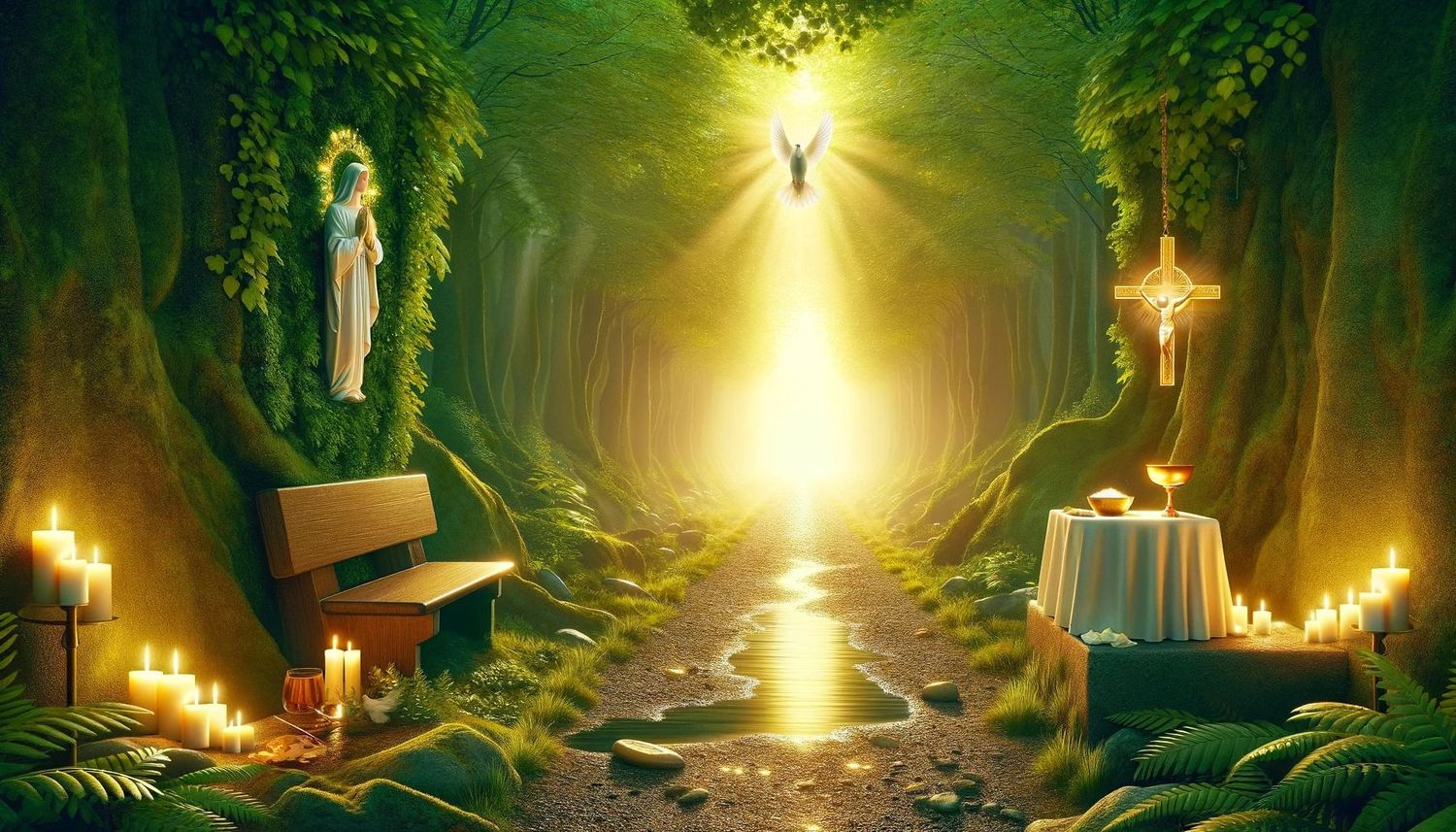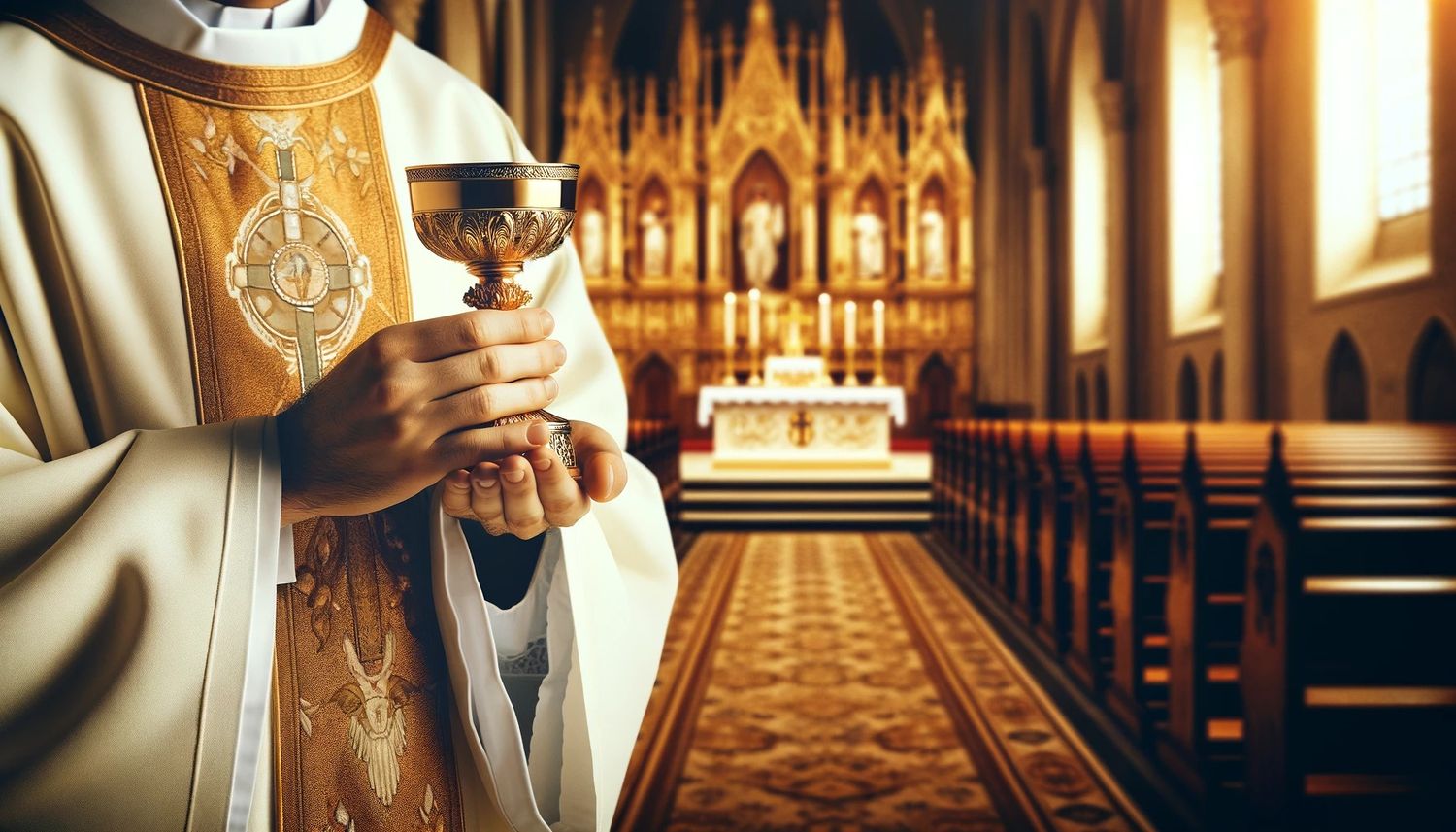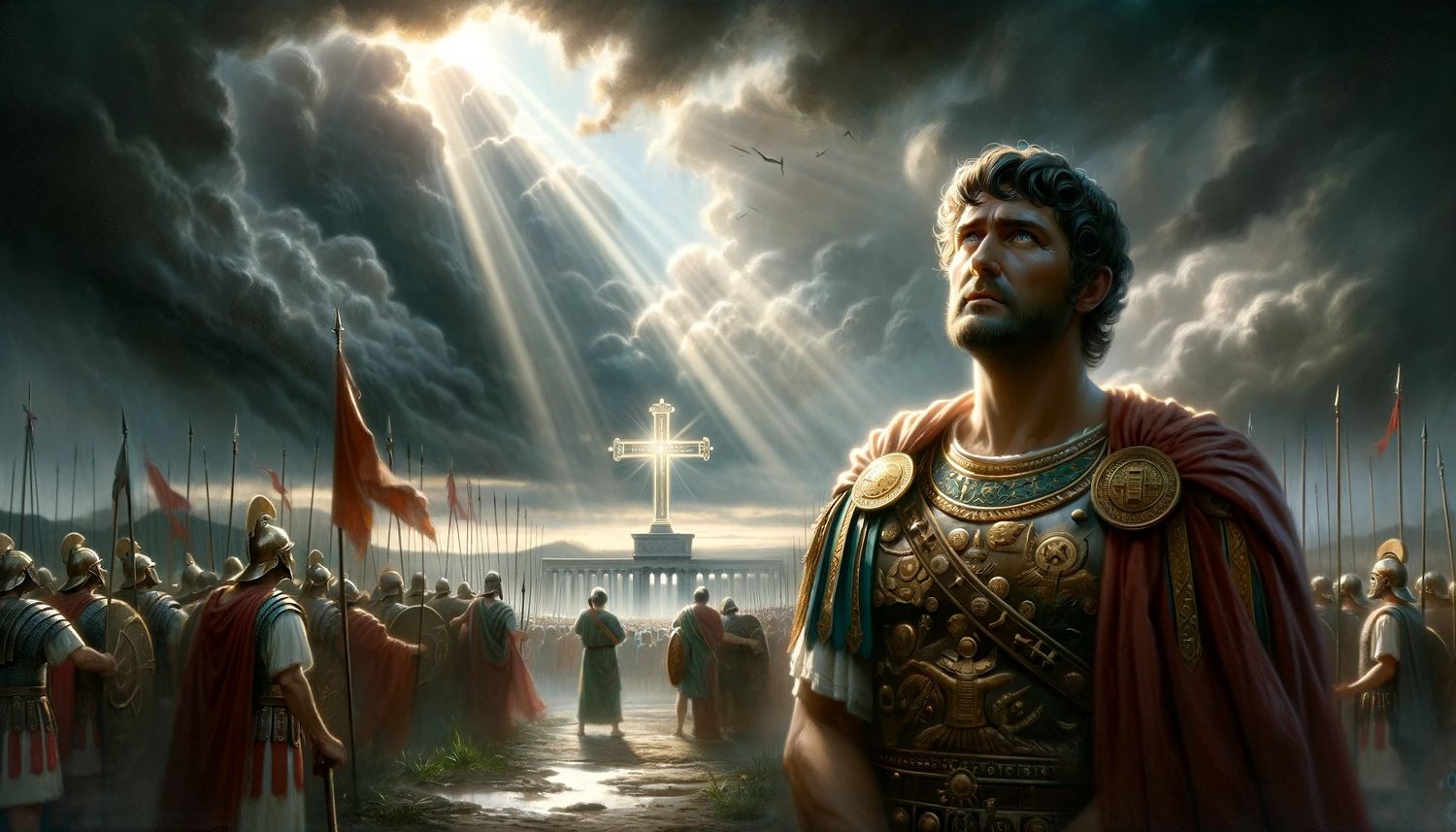Home>Theology and Spirituality>What Is Roman Catholicism About
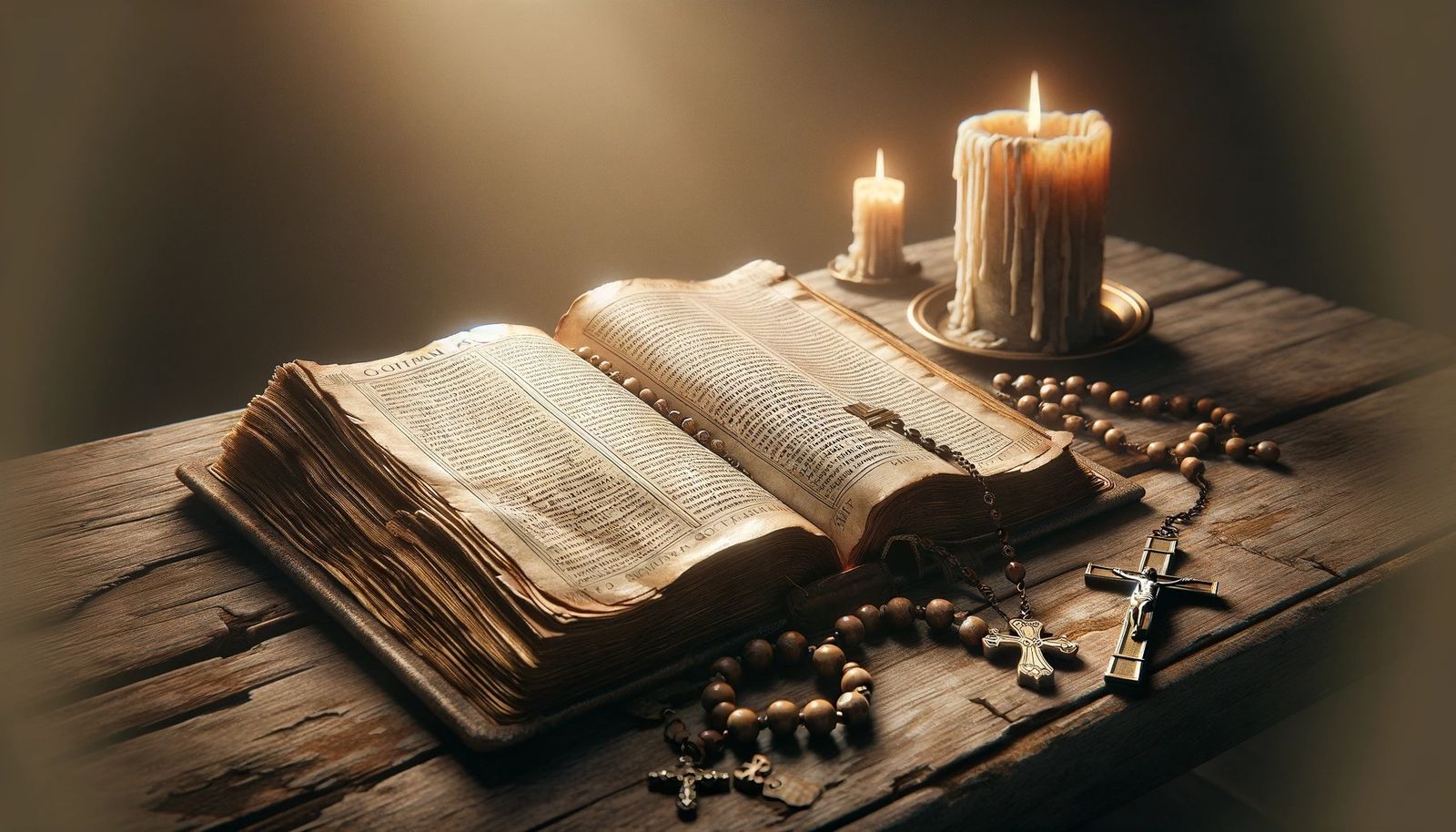

Theology and Spirituality
What Is Roman Catholicism About
Published: February 15, 2024
Jason DeRose, Managing Editor at Christian.net, uses his expertise in religion and journalism to deepen understanding of faith's societal impacts. His editorial leadership, coupled with a strong academic background, enriches the platform’s diverse content, earning him recognition in both journalism and religious circles.
Discover the essence of Roman Catholicism and its rich theology and spirituality. Explore the beliefs, practices, and traditions of this influential faith.
(Many of the links in this article redirect to a specific reviewed product. Your purchase of these products through affiliate links helps to generate commission for Christian.net, at no extra cost. Learn more)
Table of Contents
Introduction
Roman Catholicism, one of the oldest and most influential branches of Christianity, has a rich history and a profound impact on the spiritual, cultural, and social landscapes of the world. With its roots tracing back to the teachings of Jesus Christ and the apostles, Roman Catholicism has evolved into a complex and multifaceted faith tradition that encompasses a wide array of beliefs, practices, and rituals.
At its core, Roman Catholicism is centered on the life, teachings, death, and resurrection of Jesus Christ, whom Catholics believe to be the Son of God and the savior of humanity. The teachings of Jesus, as recorded in the New Testament of the Bible, serve as the foundation of Catholic doctrine and provide guidance for the moral and ethical conduct of its followers.
The Catholic Church, with its hierarchical structure and global presence, plays a central role in the lives of over a billion adherents worldwide. The influence of the Church extends beyond matters of faith and spirituality, shaping the cultural, educational, and charitable institutions that have left an indelible mark on human history.
As we delve into the intricacies of Roman Catholicism, it is essential to approach the subject with an open mind and a willingness to explore the diverse facets of this ancient faith tradition. From its historical origins to its contemporary relevance, Roman Catholicism offers a compelling tapestry of beliefs, rituals, and traditions that continue to resonate with individuals across the globe.
In the subsequent sections, we will embark on a journey through the annals of Roman Catholicism, delving into its historical evolution, core beliefs, sacramental practices, global impact, as well as the controversies and criticisms that have shaped its narrative. Through this exploration, we aim to gain a deeper understanding of the profound influence of Roman Catholicism on the human experience and the enduring relevance of its teachings in the modern world.
History of Roman Catholicism
The history of Roman Catholicism is a tapestry woven with the threads of ancient traditions, theological developments, and pivotal historical events that have shaped its identity over the centuries. Its origins can be traced back to the life and teachings of Jesus Christ, whose ministry in the 1st century laid the groundwork for the emergence of Christianity. Following the crucifixion and resurrection of Jesus, his apostles spread his teachings, establishing Christian communities across the Mediterranean region.
The early Christian communities, known for their steadfast devotion to the teachings of Jesus, faced periods of persecution under the Roman Empire. Despite these challenges, the Christian faith continued to spread, gaining followers from diverse cultural and social backgrounds. In the 4th century, the Roman Emperor Constantine's conversion to Christianity marked a significant turning point, leading to the recognition and eventual endorsement of Christianity as the state religion.
As Christianity gained prominence, the Church's organizational structure evolved, with bishops assuming leadership roles in various regions. The Bishop of Rome, known as the Pope, emerged as a central figure in the Church's hierarchy, wielding spiritual authority and providing guidance to the growing Christian community. This period witnessed theological debates and doctrinal developments, leading to the formulation of key beliefs and practices that would distinguish Roman Catholicism from other Christian traditions.
The Great Schism of 1054 marked a significant division between the Western (Latin) Church, centered in Rome, and the Eastern (Greek) Church, based in Constantinople. This schism resulted in the separation of the Roman Catholic Church and the Eastern Orthodox Church, each following distinct theological, liturgical, and administrative traditions.
The medieval era saw the apex of the Catholic Church's influence, with the Pope exercising considerable political and spiritual authority across Europe. The construction of magnificent cathedrals, the rise of monastic orders, and the flourishing of scholastic theology characterized this period. However, the Church also faced internal challenges, including periods of corruption and controversy.
The Renaissance and Reformation periods brought seismic shifts to the Catholic Church. The Renaissance sparked a renewed interest in classical learning and the arts, while the Reformation, led by figures such as Martin Luther, challenged certain practices and doctrines of the Church, ultimately leading to the splintering of Western Christianity.
The Council of Trent, convened in the 16th century, initiated the Catholic Counter-Reformation, reaffirming core Catholic teachings and addressing internal reforms. The subsequent centuries witnessed the global expansion of Roman Catholicism through missionary endeavors, as well as its engagement with modernity and social change.
Today, Roman Catholicism stands as a global faith community, encompassing diverse cultures and traditions while remaining rooted in its ancient heritage. The history of Roman Catholicism reflects a complex interplay of faith, culture, and human experience, shaping the lives of countless individuals and leaving an indelible mark on the world's history and civilization.
Beliefs and Practices
At the heart of Roman Catholicism lie a set of core beliefs and practices that guide the spiritual lives of its adherents. These beliefs are deeply rooted in the teachings of Jesus Christ and the traditions of the early Christian Church, shaping the moral, ethical, and sacramental dimensions of Catholic faith.
Core Beliefs
Central to Roman Catholic belief is the affirmation of the Holy Trinity, which acknowledges the existence of one God in three persons: the Father, the Son (Jesus Christ), and the Holy Spirit. This foundational doctrine underscores the divine nature of God and the interconnectedness of the three persons within the Godhead.
Catholics also uphold the authority of sacred scripture and tradition, viewing the Bible as the inspired word of God and embracing the teachings passed down through the apostolic succession. The Church's magisterium, comprised of the Pope and the bishops, serves as the authoritative interpreter of scripture and tradition, providing guidance on matters of faith and morals.
The doctrine of original sin, inherited from the fall of humanity in the Garden of Eden, underscores the flawed nature of humanity and the need for redemption through the saving grace of Jesus Christ. The belief in the incarnation, crucifixion, and resurrection of Jesus Christ as the Son of God forms the cornerstone of Catholic faith, offering the promise of salvation and eternal life to those who embrace it.
Sacramental Practices
Sacraments hold a central place in Catholic worship and spiritual life. These sacred rituals, instituted by Christ and entrusted to the Church, serve as visible signs of God's grace and presence in the lives of believers. The seven sacraments include Baptism, Confirmation, Eucharist, Reconciliation, Anointing of the Sick, Holy Orders, and Matrimony, each carrying profound spiritual significance and communal celebration within the Church.
The Eucharist, also known as the Holy Communion, stands as the pinnacle of Catholic sacramental practice, symbolizing the real presence of Christ in the consecrated bread and wine. Through the reception of the Eucharist, Catholics partake in a profound union with Christ and the community of believers, nourishing their spiritual journey and fostering unity within the Church.
Read more: What Does Romans Say About Baptism
Moral and Ethical Teachings
Catholic moral and ethical teachings are grounded in the principles of love, justice, and compassion. The ethical framework of Catholic social teaching encompasses a commitment to the dignity of every human person, the pursuit of the common good, solidarity with the marginalized, and stewardship of creation. These teachings guide Catholics in their engagement with societal issues, advocating for peace, social justice, and the protection of human life from conception to natural death.
The practice of prayer, both communal and personal, serves as a cornerstone of Catholic spirituality, fostering a deepening relationship with God and a sense of interconnectedness with the global community of believers. Devotional practices, such as the Rosary, novenas, and pilgrimages to sacred sites, offer avenues for spiritual reflection and expression of faith.
In essence, the beliefs and practices of Roman Catholicism form a tapestry of spiritual richness, moral guidance, and communal worship, inviting adherents to embrace the transformative power of faith and participate in the ongoing narrative of God's redemptive love for humanity.
The Role of the Pope
The Pope, also known as the Bishop of Rome and the Supreme Pontiff of the Catholic Church, holds a position of profound significance within Roman Catholicism. As the spiritual leader of the global Catholic community, the Pope serves as the successor of Saint Peter, the first among the apostles and the rock upon which Jesus Christ built his Church according to Catholic tradition.
At the core of the Pope's role is the concept of papal primacy, which asserts the Pope's authority over the entire Church, both doctrinally and jurisdictionally. This authority is believed to be derived from Jesus' commission to Peter, as recorded in the New Testament, to be the shepherd of his flock and to strengthen his fellow believers. The Pope is regarded as the Vicar of Christ on Earth, representing the presence of Jesus and exercising spiritual oversight over the faithful.
The Pope's responsibilities encompass a wide range of functions, including doctrinal interpretation, pastoral guidance, and the administration of the Church's affairs. In matters of faith and morals, the Pope is considered infallible when speaking ex cathedra, or from the chair of Peter, on issues of dogma and doctrine. This charism of infallibility is understood as a protection from error when defining matters of faith and morals for the entire Church.
The Pope also plays a pivotal role in fostering unity and communion within the Catholic Church, serving as a symbol of the Church's universality and the bond of charity that unites its diverse members. Through his teachings, encyclicals, and apostolic exhortations, the Pope provides spiritual guidance and pastoral care to Catholics worldwide, addressing contemporary challenges and articulating the Church's stance on social, ethical, and theological issues.
In addition to his spiritual duties, the Pope holds a prominent position on the global stage, engaging in diplomatic efforts, advocating for peace and justice, and representing the Church's concerns on matters of global significance. The Pope's visits to different countries and his interactions with world leaders underscore the influential role he plays in shaping international discourse and promoting dialogue among diverse cultures and religions.
The institution of the papacy carries a rich historical legacy, reflecting the continuity of apostolic succession and the enduring presence of the Church throughout the ages. The Pope's role as the visible head of the Catholic Church embodies the continuity of leadership from the time of the apostles to the present day, symbolizing the Church's steadfast commitment to preserving and proclaiming the teachings of Jesus Christ.
In essence, the role of the Pope in Roman Catholicism encapsulates the spiritual, pastoral, and global dimensions of the Church's mission, embodying the principles of servant leadership, unity, and the proclamation of the Gospel to the world.
Sacraments in Roman Catholicism
The sacraments hold a central place in the spiritual life of Roman Catholicism, serving as visible signs of God's grace and presence in the lives of believers. These sacred rituals, instituted by Christ and entrusted to the Church, carry profound spiritual significance and communal celebration within the Catholic faith tradition.
The Catholic Church recognizes seven sacraments, each conveying unique spiritual blessings and serving as pivotal moments in the faith journey of individuals. These sacraments are Baptism, Confirmation, Eucharist, Reconciliation, Anointing of the Sick, Holy Orders, and Matrimony. Each sacrament is imbued with rich symbolism and theological significance, reflecting the transformative encounters between God and the faithful.
Baptism, the gateway to the sacramental life, initiates individuals into the Christian community, cleansing them from original sin and marking them as members of the Body of Christ. Confirmation, often referred to as the sacrament of Christian maturity, strengthens the baptized with the gifts of the Holy Spirit, empowering them to bear witness to the faith courageously.
The Eucharist, also known as the Holy Communion, stands as the pinnacle of Catholic sacramental practice. In the celebration of the Eucharist, Catholics partake in the real presence of Christ in the consecrated bread and wine, experiencing a profound union with Christ and the community of believers. This sacrament nourishes the spiritual journey of the faithful and fosters unity within the Church.
The sacrament of Reconciliation, also called Penance or Confession, offers the opportunity for individuals to seek God's forgiveness for their sins and reconcile with the community. Through the ministry of the priest, Catholics experience the liberating grace of God's mercy, finding spiritual healing and renewal.
Anointing of the Sick, administered to the ill or those facing significant health challenges, brings comfort, strength, and the grace of healing to the recipients. This sacrament offers solace and spiritual support during times of physical and emotional distress, affirming the Church's care for the sick and suffering.
Holy Orders, conferred upon men called to serve as deacons, priests, or bishops, marks their dedication to the ministry of the Church. Through the sacrament of Holy Orders, individuals are empowered to exercise pastoral leadership, proclaim the Gospel, and administer the sacraments within the faith community.
Matrimony, the sacrament of marriage, sanctifies the union between a man and a woman, inviting them to share in God's love and create a domestic church rooted in faith, love, and mutual self-giving.
In essence, the sacraments in Roman Catholicism embody the tangible encounters with God's grace, shaping the spiritual identity of believers and fostering a deep sense of communion within the Church. These sacred rituals continue to enrich the lives of Catholics, serving as transformative moments of encounter with the divine presence in the midst of human experience.
Roman Catholicism Around the World
Roman Catholicism's global presence extends across continents, encompassing diverse cultures, languages, and traditions. With over a billion adherents, the Catholic Church stands as one of the most widespread and influential religious institutions, shaping the spiritual, social, and ethical fabric of societies worldwide.
In Europe, Roman Catholicism has deep historical roots, serving as a foundational element of cultural identity in countries such as Italy, Spain, France, and Poland. Magnificent cathedrals, religious festivals, and centuries-old traditions bear witness to the enduring impact of Catholicism on European civilization. The Vatican City, located within Rome, stands as the spiritual epicenter of the Catholic Church, drawing pilgrims and visitors from every corner of the globe.
In the Americas, Roman Catholicism has played a pivotal role in the historical and cultural development of Latin American countries, where it was introduced during the period of European colonization. The fusion of indigenous beliefs with Catholic practices has given rise to vibrant expressions of faith, exemplified in colorful celebrations, processions, and devotion to patron saints. In North America, the Catholic Church has contributed significantly to the religious landscape, with a diverse community of believers shaping the religious tapestry of the United States, Canada, and beyond.
In Africa, the growth of Roman Catholicism has been remarkable, with a burgeoning number of faithful across the continent. The Church's engagement in education, healthcare, and social development has left a profound impact on African societies, addressing pressing humanitarian needs and fostering spiritual growth within diverse cultural contexts.
In Asia, Roman Catholicism has witnessed both historical continuity and dynamic growth, with a significant presence in countries such as the Philippines, India, and South Korea. The Catholic Church's commitment to social justice, interreligious dialogue, and humanitarian initiatives has contributed to its relevance in addressing contemporary challenges in the region.
Oceania, encompassing Australia, New Zealand, and the Pacific Islands, has also been touched by the influence of Roman Catholicism, with a rich tapestry of faith expressions and missionary endeavors shaping the spiritual landscape of the region.
The global reach of Roman Catholicism reflects its adaptability to diverse cultural milieus while maintaining a core set of beliefs and practices. The Catholic Church's engagement with social issues, interreligious dialogue, and humanitarian efforts underscores its commitment to addressing the needs of the global community, transcending geographical boundaries and fostering a sense of solidarity among believers worldwide.
Read more: Who Founded Roman Catholicism?
Controversies and Criticisms
Throughout its extensive history, Roman Catholicism has been the subject of various controversies and criticisms, reflecting the complex interplay between religious authority, societal dynamics, and ethical considerations. These contentious issues have sparked debates, internal reforms, and external scrutiny, shaping the narrative of the Catholic Church and its interactions with the broader world.
One of the most enduring controversies within Roman Catholicism revolves around the historical instances of institutional corruption and abuse of power. The medieval period, in particular, witnessed the accumulation of wealth and political influence by the Church hierarchy, leading to criticisms of opulence, nepotism, and the exploitation of the faithful. The indulgence system, which allowed for the purchase of remission for sins, became a focal point of contention during the Reformation and continues to be a source of historical critique.
The issue of clerical abuse, including cases of sexual misconduct by clergy members, has emerged as a deeply troubling and widely publicized controversy within the Catholic Church. Revelations of abuse and the mishandling of allegations have led to profound anguish among the faithful and have prompted calls for transparency, accountability, and the safeguarding of vulnerable individuals within the Church's care.
The Catholic Church's stance on social and ethical issues, including matters related to gender equality, reproductive rights, and LGBTQ+ rights, has generated significant criticism from both within and outside the faith community. Debates surrounding contraception, abortion, and same-sex marriage have underscored the divergent perspectives within Catholicism and have prompted discussions on the intersection of religious teachings with contemporary social realities.
Historical episodes such as the Inquisition, the Crusades, and the persecution of individuals deemed heretical have left enduring scars on the collective memory of humanity, prompting critical reflections on the use of religious authority and the pursuit of doctrinal orthodoxy. The legacy of these events continues to evoke introspection and calls for reconciliation and dialogue among diverse religious communities.
In recent decades, the Catholic Church has faced scrutiny regarding its handling of issues related to social justice, environmental stewardship, and the role of women in leadership positions. Calls for greater inclusivity, transparency in financial matters, and the full accountability of Church leadership have been articulated by both internal and external voices, reflecting a desire for ongoing reform and renewal within the institution.
The controversies and criticisms surrounding Roman Catholicism serve as a testament to the evolving nature of religious institutions and the imperative of engaging in dialogue, introspection, and ethical discernment. While these challenges have tested the resilience of the Catholic Church, they have also catalyzed efforts toward reform, reconciliation, and a renewed commitment to the principles of justice, compassion, and the pursuit of the common good.
Conclusion
In conclusion, Roman Catholicism stands as a multifaceted tapestry of faith, history, and global influence, weaving together the spiritual journeys of over a billion adherents worldwide. From its historical origins rooted in the teachings of Jesus Christ to its contemporary presence in diverse cultural landscapes, Roman Catholicism embodies a rich legacy of beliefs, practices, and communal traditions that continue to shape the human experience.
The history of Roman Catholicism reflects a narrative of resilience, transformation, and engagement with the complexities of human existence. From the early Christian communities facing persecution to the global expansion of the Catholic Church through missionary endeavors, the historical evolution of Roman Catholicism mirrors the enduring quest for spiritual truth and the proclamation of God's redemptive love for humanity.
The core beliefs and practices of Roman Catholicism, centered on the Holy Trinity, the authority of sacred scripture and tradition, and the sacramental life of the Church, offer a framework for moral guidance, communal worship, and the pursuit of spiritual growth. The sacraments, in particular, serve as tangible encounters with God's grace, nurturing the faith journey of individuals and fostering a sense of unity within the global Catholic community.
The role of the Pope within Roman Catholicism symbolizes the continuity of leadership from the time of the apostles, embodying the principles of servant leadership, unity, and the proclamation of the Gospel to the world. The Pope's spiritual guidance, pastoral care, and global advocacy underscore the Church's commitment to addressing contemporary challenges and promoting dialogue among diverse cultures and religions.
The global reach of Roman Catholicism reflects its adaptability to diverse cultural milieus while maintaining a core set of beliefs and practices. The Catholic Church's engagement with social issues, interreligious dialogue, and humanitarian efforts underscores its commitment to addressing the needs of the global community, fostering a sense of solidarity among believers worldwide.
Amidst controversies and criticisms, the Catholic Church continues to navigate the complexities of its historical legacy and engage in ongoing efforts toward reform, reconciliation, and ethical discernment. The challenges faced by Roman Catholicism serve as catalysts for introspection, dialogue, and a renewed commitment to the principles of justice, compassion, and the pursuit of the common good.
In essence, Roman Catholicism remains a vibrant and evolving faith tradition, inviting individuals to embark on a journey of spiritual discovery, communal worship, and engagement with the profound mysteries of divine grace. As the Catholic Church continues to navigate the currents of history and contemporary realities, its enduring message of hope, love, and redemption resonates as a timeless beacon of faith in an ever-changing world.
